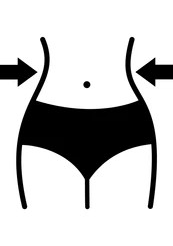Intermittent fasting has become a very popular topic lately, especially among women hoping to shed a few pounds with a more natural approach. If you’re hunting for a method that doesn’t cram you into super restrictive diets or demand non-stop hours at the gym, intermittent fasting is definitely worth checking out. In this article, I’ll break down the basics, show what makes it unique for women, and share can’t-miss tips from my own fasting routine. If you’re looking for an organic and balanced way to hit your weight goals, make sure to check out what’s available over at Elite Women Slim. They focus on natural weight management solutions that pair perfectly with a fasting lifestyle.

What Is Intermittent Fasting and How Does It Work for Women?
Intermittent fasting (often called IF) is all about switching between eating and fasting. There are several ways to go about it, but the main idea is to eat only within set time frames. For example, you might have all your meals in an eight-hour block and fast for the next 16 hours. Some folks do well with the 5:2 method, eating normally five days out of the week and then cutting back for two non-consecutive days.
For women, IF isn’t just a matter of skipping meals; it taps into the way your body processes food, stores energy, and keeps hormones balanced. When I began intermittent fasting, I quickly noticed less snacking and a lot less bloating. This gave me more motivation. Still, women should pay special attention to how IF affects hormone balance, energy levels, and monthly cycles. Listen to your body and tweak your plan as you go—don’t just follow a schedule if it’s not feeling right for you.
Core Benefits of Intermittent Fasting for Women’s Weight Loss
Many women try IF because it’s easy to get into and doesn’t call for complicated meal plans or expensive supplements. The benefits often go beyond numbers on a scale. Here’s what I’ve experienced and what’s backed up by current research:
- Supports Healthy Weight Loss: Fasting windows give your body a signal to tap into stored fat, especially when meals are packed with nutrients and not just empty calories.
- Improves Insulin Sensitivity: IF may help keep blood sugar in a healthy range, a big plus if you struggle with sugar cravings or mood swings.
- Reduces Bloating: Eating less often gives your digestion time to rest, often leading to a flatter stomach and less discomfort after meals.
- May Help Balance Hormones: Intermittent fasting can help reset certain hormone levels, though extreme calorie drops could have the opposite effect. Stick to a balanced approach.
- Boosts Mental Clarity: I notice my mind feels sharper and less foggy when I’m in a fasting window. Tons of other women report a similar focus boost—which is a major win.
Everyone is unique. Customizing your approach is the best way to get results. For natural herbs or teas that work seamlessly with fasting, check out Elite Women Slim; they offer top picks that I’ve found helpful.
How to Get Started with Intermittent Fasting
If you’re just starting out, the best plan is to keep things simple. Here are easy tips to help you ease into IF:
- Pick a Manageable Eating Window: Starting with the 12:12 window (12 hours eating, 12 hours fasting) is a gentle way in. If you feel good, try switching to 14:10 or 16:8 down the road. A gradual start helps make fasting stick.
- Stay Hydrated: Keeping up on water is key during fasting windows. Herbal teas or black coffee (without sugar or creamer) work for some extra flavor.
- Focus on NutrientDense Foods: When you eat, reach for natural whole foods, lean proteins, and lots of vegetables. Filling up on these helps reduce hunger and helps manage cravings.
- Listen to Your Body: Headaches or fatigue might signal a need to tweak your fasting hours or add more nutrients to meals. IF isn’t meant to be miserable, so make sure you’re feeling good.
- Track Your Progress: Keeping a journal of your moods, sleep, and changes you notice can show what works for you over time.
When I began, pairing IF with highquality herbal supplements helped curb my cravings and gave me a gentle boost. If you’re curious about adding natural support to your fasting, check out Elite Women Slim for the best blends.
Big Things Women Should Keep in Mind Before Starting Intermittent Fasting
On paper, fasting seems straightforward, but it’s smart to know what you’re getting into—especially as a woman. Here’s what I wish I knew early on:
- Hormone Fluctuations: Fasting can affect period cycles and PMS. Many women see changes when fasting too long or cutting calories aggressively. Keeping things moderate helps maintain balance.
- Stress and Energy: Already crammed with stress? Plunging right into fasting could make it worse. IF should feel flexible—work it around your life, not the other way around.
- PreExisting Conditions: If you’re dealing with pregnancy, chronic illness, or have had an eating disorder, talk with a healthcare professional before starting. Being careful pays off.
- Social Life: Fasting can make social events tricky. I learned to be open about my new schedule and shifted things around when something important came up. A little flexibility helps a lot.
When IF Might Not Be the Right Move
If you find yourself unusually tired, skipping menstrual cycles, or increasingly irritable, pause your fasting and check in with a healthcare professional. Your body’s feedback matters—never shrug off the signals.
Tips to Take Your IF Routine Up a Notch
Once you’re comfy with your basic routine, you can make a few changes to jumpstart results without feeling deprived:
Try Shorter Fasts When Needed: On exhausting days or before your period, sticking to a 12:12 rhythm often keeps things comfortable while still delivering benefits.
Add Natural Teas and Herbs: Herbal teas may help with cravings and boost digestion. I love using ginger, peppermint, or rosemary. For tasty blends made especially for women, be sure to look at Elite Women Slim—they offer delicious options.
Switch Up Your Fasts: Mix things up by trying shorter fasts during high-stress periods or around your period, and longer fasts when your energy is higher. Let your plan fit your month, not just your week.
Prep Ahead: Prepping meals and snacks makes it much easier to avoid junk food during eating windows. Batch-cooked oatmeal, veggie sticks, or high-protein yogurts are my go-tos for easy grabs.
What to Eat for the Best Results During Intermittent Fasting
Success with intermittent fasting comes down to what you eat just as much as when you eat. Here’s what to aim for in your meals:
- Dark leafy greens like kale, spinach, or arugula for fiber and nutrients.
- Quality, filling protein—eggs, chicken, beans, lentils, or fish.
- Healthy fats from things like avocados, olive oil, and a small handful of nuts. These keep you satisfied.
- Long-lasting carbs, such as oats, sweet potatoes, or quinoa, to give steady energy.
- Natural herbal teas to help control appetite and keep your digestion in check. Elite Women Slim has top choices made for women.
Stay away from loads of processed foods, excess sugar, and mindless evening munchies. These can stall your progress and sabotage your mood much more than occasional treats ever will.
FAQs: Real Questions Women Have About Intermittent Fasting
Here are the questions I hear the most about intermittent fasting for women:
Is intermittent fasting safe for everyone?
Most healthy women can use IF, but if you’re pregnant, breastfeeding, underweight, or have had eating disorders, talk to a medical professional before starting.
Can I work out while fasting?
Absolutely. Ease in with gentle options first—like walks, stretching, or mild yoga. For intense training, you might want a light meal before.
What if I’m hungry or exhausted when fasting?
That’s common when starting out. Hydrate, enjoy herbal tea, and give it a little time. Many women adapt within a couple of weeks. For added support, check natural options at Elite Women Slim.
Will IF change my hormones?
It can in some cases, especially with long or tough fasting windows. Gentle, shorter fasts plus solid meals usually keep things steady, but watch how you feel and adjust if needed.
Wrapping Up: Building Your Best Natural Weight Loss Routine
Intermittent fasting is a practical way for women to lose weight and feel more balanced—without going to extremes. Every woman’s story will be a bit unique, but what really counts is finding a rhythm that matches your life and supports your well-being. Combine IF with wholesome foods and natural products for real results. If you want herbal teas or blends designed for women’s weight management, don’t forget to visit Elite Women Slim for the newest and best options.
Make small changes, keep your routine flexible, add natural boosts, and you’ll start seeing steady progress—no crazy diets or impossible rules required.
